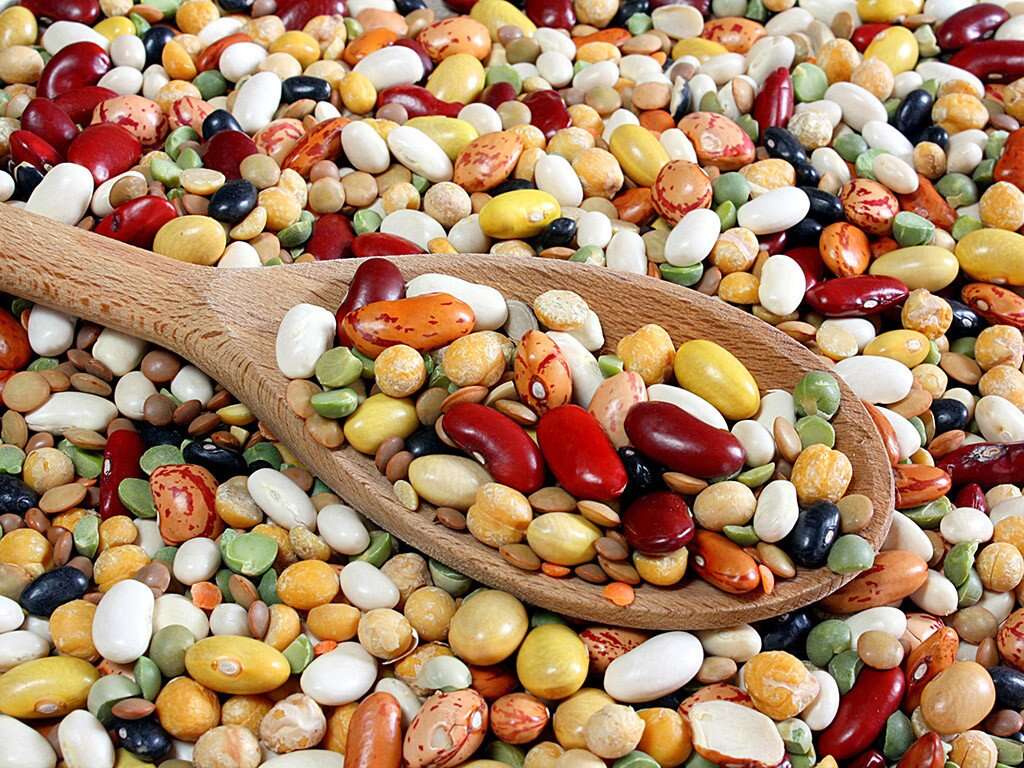Simple Carbohydrates vs. Complex Carbohydrates
 Article Sources
Article Sources
- 1. ’Carbohydrates.’ Cleveland Clinic. www.my.clevelandclinic.org/health/articles/15416-carbohydrates
- 2. Kandola A. ‘What to know about simple and complex carbs.’ Medical News Today. www.medicalnewstoday.com/articles/325171
- 3. Holesh J; Aslam S; Martin A. ‘Physiology, Carbohydrates.’ National Institutes of Health. www.ncbi.nlm.nih.gov/books/NBK459280/
- 4. ’Glycemic index for 60+ foods.’ Harvard Health Publishing. www.health.harvard.edu/diseases-and-conditions/glycemic-index-and-glycemic-load-for-100-foods
Many diet and nutrition articles and books discuss carbohydrates and their role in maintaining health and fitness. Some authors promote low-carbohydrate diets, but others are more interested in the right amounts and types of carbs. Recently, it's been recognized that healthy diets include more complex carbs while reducing simple carbohydrates.
But the discussion doesn't stop there. It's important to learn how to read the labels when going to the grocery store to decide which types to include or avoid. Categorizing simple carbohydrates as bad and complex carbohydrates as good is not enough. Understanding the value of both is vital.

What Are Simple Carbohydrates?
Carbohydrates are organic compounds made up of short and long chains of glucose molecules called saccharides. The simplest ones, monosaccharides, are the most basic and include glucose, lactose and fructose, known as simple sugars. Sucrose, or table sugar, is a disaccharide with two monosaccharides combined.3Holesh J; Aslam S; Martin A. ‘Physiology, Carbohydrates.’ National Institutes of Health. www.ncbi.nlm.nih.gov/books/NBK459280/
Simple carbohydrates contain one or two glucose molecules, are the most easily used for energy and cause a rapid rise in blood sugar. They're found in candy, soda, syrup, fruit juice and table sugar. Some types aren't nutritionally valuable, while others have some vitamins and other nutrients.1’Carbohydrates.’ Cleveland Clinic. www.my.clevelandclinic.org/health/articles/15416-carbohydrates

What Are Complex Carbohydrates?
Complex carbohydrates contain three or more glucose molecules, take longer to digest and raise blood sugar gradually. They're found in fruits, cruciferous vegetables, leafy greens, whole grains and brown rice, to name just a few.3Holesh J; Aslam S; Martin A. ‘Physiology, Carbohydrates.’ National Institutes of Health. www.ncbi.nlm.nih.gov/books/NBK459280/
Starches and fiber are also complex carbohydrates. Starches contain many glucose molecules. In this category are wheat, potatoes, beans and pasta. Fiber is a carbohydrate form that isn't digested but acts as a stool bulking agent and encourages healthy bacterial growth in the intestines, reducing inflammation.2Kandola A. ‘What to know about simple and complex carbs.’ Medical News Today. www.medicalnewstoday.com/articles/325171

Nutritional Value of Simple Carbohydrates
While simple carbohydrates are often referred to as bad carbs, they're not all bad when consumed in limited amounts. Milk contains a simple carbohydrate called lactose, but it's a nourishing food with protein and vitamins. Honey, a simple carbohydrate, provides energy and has antibacterial qualities.
Simple carbs like sugar and syrups can have adverse effects, such as dental cavities, because they support bacterial growth in the mouth. The sometimes pleasant phenomenon called a sugar rush often deteriorates into increased fatigue and lower alertness levels.2Kandola A. ‘What to know about simple and complex carbs.’ Medical News Today. www.medicalnewstoday.com/articles/325171

Nutritional Value of Complex Carbohydrates
It's been thought that carbohydrates promote type 2 diabetes when, in reality, the villain is usually certain carbohydrates. A diet high in carbohydrates, if the right food choices are made, may help manage diabetes by providing gradual glucose increases and metabolism stability.
Leafy greens, avocados, beans and peas contain complex carbohydrates and other nutrients that can help sustain satisfaction and maintain healthy glucose levels.

The Glycemic Index
The glycemic index (GI) is a scale ranging from one to 100 that indicates how quickly sugar-containing foods increase blood glucose levels when compared with pure glucose.
Low glycemic foods with a score of 55 or less include steel-cut oatmeal and non-starchy vegetables. The middle glycemic range is 56 to 69 and include bran cereals and bananas. The high range is from 70 to 100, which should be consumed in small amounts, include white bread and flour, cornflakes and rice cakes.4’Glycemic index for 60+ foods.’ Harvard Health Publishing. www.health.harvard.edu/diseases-and-conditions/glycemic-index-and-glycemic-load-for-100-foods

Fiber
Fiber is a complex carbohydrate that provides little nutritional value but has a role in maintaining equilibrium in the body. Soluble fiber helps decrease overall cholesterol and raise HDL, the healthy cholesterol. It also can assist with waste elimination and maintain healthy blood glucose levels. Food examples include oats, fruits, broccoli and dried beans.
The role of insoluble fiber is principally to absorb water in the intestines, creating bulkier, softer stools that prevent constipation. Bran, seeds and brown rice are some insoluble fiber-rich foods.

Carbohydrates and Diabetes
Not all carbohydrates adversely affect diabetes. Counting carbs, regardless of the source, has been a popular strategy to control diabetes for decades. As long as they come within a daily total, it doesn't matter what form they're in. But 35 grams of carbs from a cupcake is nutritionally different than 35 grams from apples.
Getting carbohydrates from low and medium glycemic foods is a healthy dietary approach for people with diabetes.4’Glycemic index for 60+ foods.’ Harvard Health Publishing. www.health.harvard.edu/diseases-and-conditions/glycemic-index-and-glycemic-load-for-100-foods

Carbohydrates and Heart Disease
There are many ways heart health could be impacted by the overconsumption of the wrong carbs. For example, studies suggest that obesity contributes to the incidence and severity of heart disease and is commonly caused by overeating, especially high glycemic carbs combined with unhealthy fats.3Holesh J; Aslam S; Martin A. ‘Physiology, Carbohydrates.’ National Institutes of Health. www.ncbi.nlm.nih.gov/books/NBK459280/
Dental health is another factor. When sugary carbs are eaten, bacteria in the mouth can cause cavities and gum disease. If the bacteria gets into the bloodstream, it can cause a life threatening condition called sepsis.3Holesh J; Aslam S; Martin A. ‘Physiology, Carbohydrates.’ National Institutes of Health. www.ncbi.nlm.nih.gov/books/NBK459280/

Carbohydrate Malabsorption
If the body doesn't absorb carbohydrates correctly and efficiently, problems that include gas, diarrhea, abdominal pain and constipation may occur. Even foods like milk can cause health issues because milk contains the sugar lactose. The milk isn't the problem, but the lack of lactase enzymes in the body could cause lactose intolerance.
Bowel diseases like celiac and Crohn's are commonly related to carbohydrate malabsorption. Diseases associated with malabsorption should be properly managed with medication, and food sensitivities should also be addressed.

Summary
Many complex carb foods are beneficial for health, and it's important to understand that simple carbs can be consumed in small amounts, too. In general, complex carbs are preferable to simple ones, and home made foods are preferred over highly processed foods from fast food restaurants.
Some complex carbs, such as starchy white potatoes and white bread, could be considered less healthy than sweet potatoes and whole wheat bread, based on the glycemic index and nutritional profile.











